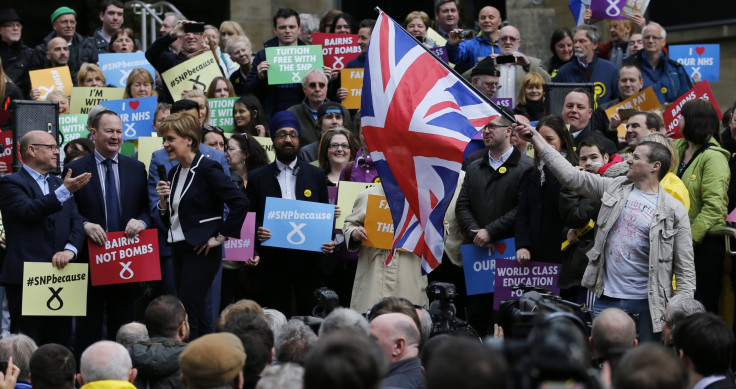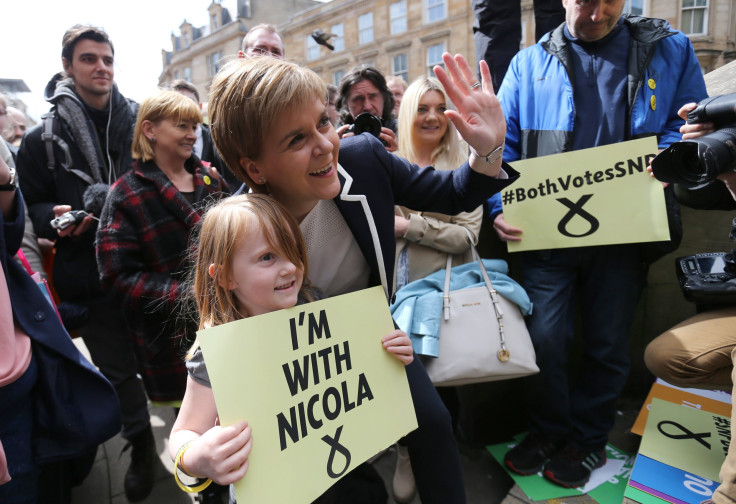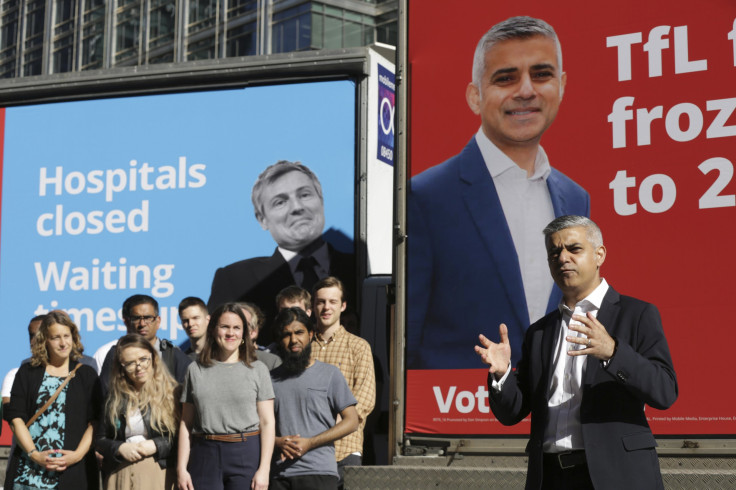UK Elections 2016 For England, Scotland, Wales, Northern Ireland: Candidates, Issues, How To Get Results And More

The United Kingdom's biggest set of elections outside of a national vote for Parliament takes place Thursday. On a day dubbed American-style as Super Thursday, citizens all over England, Scotland, Wales and Northern Ireland will head to the polls to elect local and regional leaders. Here’s a look at everything you need to know about the elections.
Candidates and Races to Watch
Voters will cast ballots for the Scottish Parliament, the Northern Ireland Assembly, the Welsh Assembly, local councils in England, the London mayor and assembly, the police and crime commissioner and two by-elections for the national Parliament at Westminster Thursday.
In Scotland, the Scottish National Party is expected to keep its majority in Parliament against four opposition parties. The Labour and Conservative parties are vying for second to emerge as the official opposition. Members hold five-year terms, and 129 will be elected. SNP leader Nicola Sturgeon looks set to keep the post of first minister after campaigning hard and promising to “move this country forward.” Sturgeon has stated she expects a second referendum on Scottish independence to take place during her second term if she is elected. The SNP's referendum for independence in 2014 fell short.

In Northern Ireland, Sinn Fein and the Democratic Unionist Party are the two major groups to watch. Voters will select six members apiece from 18 constituencies for five-year terms in the Legislative Assembly. In Wales, the Labour Party is hoping to keep its majority while both Conservative and the Welsh nationalist Plaid Cymru look to gain with 60 members selected for five-year terms. The U.K. Independence Party, which is based in England, is hoping to pick up its first Assembly seats in Wales.
One of the hottest contests to watch is for London mayor, with a race pitting Conservative Zac Goldsmith against Labourite Sadiq Khan. The race has involved derogatory comments toward Khan, a practicing Muslim. Goldsmith has accused Khan of giving “platforms, oxygen and even cover – over and over and over again – to those who seek to do our police and capital harm.” Polls have Khan ahead of Goldsmith for the four-year position.

Other English mayoral races to watch include Bristol, Liverpool and Salford. On the 124 local councils across England, 2,734 seats are up for grabs.
The Issues
While voter turnout is expected to be either low or moderate, the election could serve as a verdict on how major political parties have been governing. The London mayoral election comes as the Labour Party has been caught in a political storm after former London Mayor Ken Livingstone was suspended from the party for backing a member of parliament who shared an anti-Semitic post on social media. If Khan wins, it would be a victory for Labour leader Jeremy Corbyn. If Labour does well nationally, it will provide an additional boost for Corbyn. If Labour does not fare well, the Conservative Party could gain an edge.
How To Stay Updated, Get Results
While vote counting will begin Thursday evening, most results will not be known until Friday. Results of the London mayoral election are expected Friday evening local time. The BBC and the Guardian will provide updates throughout the day Thursday and Friday.
When this election is over, British voters will quickly move on to the next issue. Britain votes June 23 on whether to stay in the European Union.
© Copyright IBTimes 2024. All rights reserved.






















